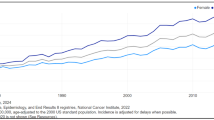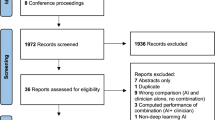Abstract
Healthcare sector in today’s era is swapping drastically with the latest technologies like artificial intelligence, machine learning, and deep learning. These technologies have notable determined very aspects of the hospital. Many precise tasks such as image recognition for example classifying skin biopsy lesions, determining diabetic retinopathy severity, and detecting brain tumors can be done with the help of engineering science and present day technology called artificial intelligence. With such an amazing technology, there has been a great engrossment in developing AI diagnostics solutions for the detection and diagnosis of cancer. With the immediate requirement of AI systems, there will be great change in the healthcare sector. This advanced and extraordinary technology will play a great role in stopping the rapid growth of cancers, low awareness among the extended population, and lack of sufficient services and clinical expertise so that AI systems can assist the clinicians in this domain. Analysis of big datasets can be done very easily and with less cost and time by using AI technologies. Many deep learning algorithms, AI solutions are developed by researchers to detect and diagnose cancer precisely and to handle the skin datasets smartly. The advancement and endorsement of AI algorithms need large volumes of well-structured data, and these algorithms must work with changing levels of data quality. It is very important to understand how AI algorithms function to stop the severe conditions of cancers like breast cancer, gastric cancer, prostate cancer, and many more. The clinicians must understand this technology deeply and how it perfectly fits into everyday clinical practice and how patients are calmly addressed. This paper surveys how different types of cancers are detected and diagnosed using the latest AI technology as AI provides good support to doctors for the detection and diagnosis. It also plays a clear and supreme role in aiding patients in cancer detection in the future and will be thrilling to check the benefits that arise for patients and doctors from its use in everyday practices.
.
Access this chapter
Tax calculation will be finalised at checkout
Purchases are for personal use only
Similar content being viewed by others
References
Sung H, Ferlay J, Siegel RL, Laversanne M, Soerjomataram I, Jemal A, Bray F (2021) Global cancer statistics 2020: GLOBOCAN estimates of Incidence and Mortality international for thirty six Cancers in 185 Countries, CA Cancer J Clin, pp 1–41
https://www.uicc.org/news/globocan-2020-new-global-cancer-data
Huang S, Yang J, Fong S, Zhao Q (2020) Artificial intelligence in cancer diagnosis and prognosis: opportunities and challenges
Mirnezami R (2020) Cancer detections and treatment decisions using artificial intelligence. Artif Intell Healthc, pp 117–141
Patil S, Moafa IH, Alfaifi MM, Abdu AM, Jafer MA, Raju L, Raj AT, Sait SM (2020) Reviewing the role of artificial intelligence in cancer. Asian Pac J Cancer Biol 5(4)
Janowczyk A, Leo P, Rubin MA (2020) Clinical deployment of AI for prostate cancer diagnosis
Prostate cancer in Australia statistics. https://www.canceraustralia.gov.au/affected-cancer/cancer-types/prostate-cancer/prostate-cancer-australia-statistics
Dustler M (2020) Evaluating AI in breast cancer screening: a complex task. Lancet Digit Health 2(3):E106–E107
Kim HE, Kim HH, Han BK, Kim KH, Han K, Nam H, Lee EH, Kim EK (2020) Changes in cancer detection and false-positive recall in mammography using artificial intelligence: a retrospective, multireader study
Ono H, Yao K, Fujishiro M, Oda I, Nimura S, Yahagi N, Iishi H, Oka M, Ajioka Y, Ichinose M, Matsui T, Guidelines for endoscopic submucosal dissection and endoscopic mucosal resection for early gastric cancer
Antaa JA, Dinis-Ribeiro M (2020) Early gastric cancer and Artificial Intelligence: Is it time for population screening? Best Pract Res Clin Gastroenterol
Yoon HJ, Kim JH (2020) Lesion-based convolutional neural network in diagnosis of early gastric cancer. Clin Endos 53(2)
Author information
Authors and Affiliations
Corresponding author
Editor information
Editors and Affiliations
Rights and permissions
Copyright information
© 2022 The Author(s), under exclusive license to Springer Nature Singapore Pte Ltd.
About this paper
Cite this paper
Khehra, H.K., Saggar, T., Kashyap, M., Mavi, B.S. (2022). Cancer Detection and Diagnosis Using Artificial Intelligence. In: Kumar, A., Ghinea, G., Merugu, S., Hashimoto, T. (eds) Proceedings of the International Conference on Cognitive and Intelligent Computing. Cognitive Science and Technology. Springer, Singapore. https://doi.org/10.1007/978-981-19-2350-0_8
Download citation
DOI: https://doi.org/10.1007/978-981-19-2350-0_8
Published:
Publisher Name: Springer, Singapore
Print ISBN: 978-981-19-2349-4
Online ISBN: 978-981-19-2350-0
eBook Packages: Computer ScienceComputer Science (R0)




